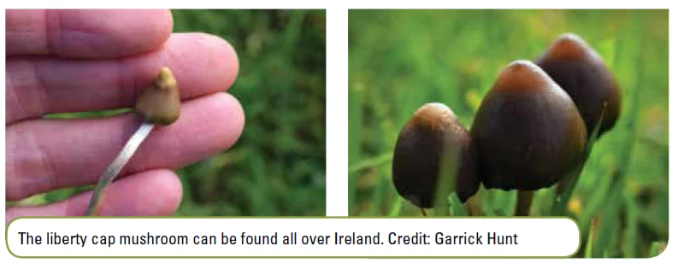Magic Mushrooms: More Americans are using psilocybin, especially those with mental health conditions, to try to make themselves better, a new study shows.
Use of psilocybin, the hallucinogenic chemical found in what is known as “magic mushrooms,” has increased significantly since 2019, according to a new study led by researchers at the University of Colorado Anschutz Medical Campus and Rocky Mountain Poison and Drug Safety.
“We found that since 2019, the number of people using psilocybin has gone up sharply,” said Karilynn Rockhill, PhD, co-lead author of the study and researcher at the Colorado School of Public Health. “This seems to line up with when some U.S. states began to decriminalise or legalise it.”
People with mental health conditions or chronic pain were more likely to report using psilocybin.
In 2023, more adults used psilocybin than drugs like cocaine, LSD, methamphetamine or illegal opioids.
“What really surprised us was how quickly these numbers changed and how many people using psilocybin had conditions like depression, anxiety or chronic pain,” said Rockhill. “New laws or growing interest in its potential mental health benefits may be prompting people to seek psilocybin as a form of self-treatment.”
Psilocybin has been studied as a possible treatment for conditions like PTSD, depression and substance use disorders, though it is not yet approved by the US Food and Drug Administration (FDA).
“Public views on psilocybin are shifting. However, that means we also need to make sure people understand the risks, know how to use it safely if they choose to, and that health care systems are prepared,” said Joshua Black, PhD, co-lead author.
Magic Mushrooms and Ireland
Ireland has a long tradition of using magic mushrooms. However, knowledge on how to use them was an important part of this tradition.
These days, however, magic mushrooms containing psilocybin are illegal in Ireland under the Misuse of Drugs Act 1977.
Their sale, possession, and cultivation were banned in 2006 following incidents linked to their use. However, Amanita mushrooms, which contain different toxic substances, are not currently scheduled under this act, creating a legal loophole for their sale.

Should Magic Mushrooms be Legal for Medical Purposes in Ireland?
Perhaps. Psilocybin has shown promise in treating conditions like depression, anxiety, PTSD, and addiction. Clinical trials, such as those by Johns Hopkins and Imperial College London, demonstrate significant reductions in depressive symptoms and anxiety in patients with treatment-resistant conditions, often after just one or two guided sessions.

Ireland’s mental health crisis, with high rates of depression and suicide, could benefit from novel treatments where other therapies fail.
Psilocybin also promotes neuroplasticity, helping the brain form new connections. Studies show it can “reset” neural pathways, offering lasting relief from conditions like major depressive disorder.
Psilocybin therapy has been effective in reducing existential distress in terminally ill patients. Trials, like those at NYU, show it helps patients with cancer-related anxiety find peace, improving quality of life. Ireland’s aging population and palliative care needs make this a compelling case.
Polls, like a 2023 YouGov survey, show increasing public support for psychedelic legalisation for medical use across Europe. The U.S. (Oregon, Colorado), Canada, and Australia have moved toward decriminalisation or medical legalisation, reflecting a global shift. Ireland could align with this progressive trend, addressing stigma and outdated drug policies.
Mushies: Should They Be Legal?
Legalising psilocybin for medical treatment in Ireland could address unmet mental health needs, improve palliative care, and spur economic growth, all while aligning with global trends. But are we ready to be as medically open as other countries?





